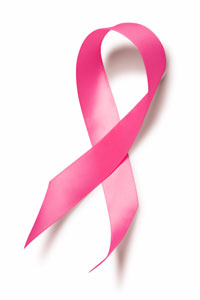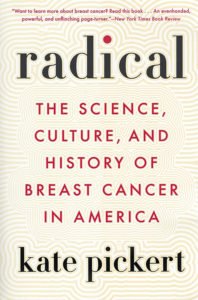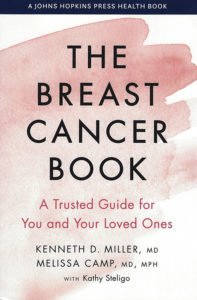 October is Breast Cancer Awareness Month.
October is Breast Cancer Awareness Month.
Breast cancer is a disease in which cells in the breast grow uncontrollably. Breast cancer is typically associated with cisgender women, though anyone with breast cells can develop the disease. The CDC reports that breast cancer affects about 257,300 people a year in the United States. According to the National Cancer Institute, it is “the second most common cancer in women after skin cancer,” affecting 1 out of every 8 women in the U.S. Additionally, about 2,300 men in the U.S. are diagnosed each year. A study published by the British Medical Journal also found that transgender women and nonbinary individuals taking hormones such as estrogen and antiandrogens had a 46% higher chance of developing breast cancer.
According to the National Institute of Environmental Health Sciences (NIEHS), most people who develop breast cancer have no family history, “suggesting an environmental link,” which is supported by a mounting body of scientific literature suggesting “connections between exposures to environmental toxicants and later development of disease.” A series of NIEHS studies found that women who lived in areas with high levels of lead, mercury, cadmium, and other small particulate matter in air pollution or burned wood or methane gas indoors at least once a week had a higher risk of developing breast cancer. The demographic group in the study who experienced the highest risk of exposure were Black women in Midwestern urban areas.
Some other factors the studies found to correlate with an increased risk for breast cancer included having trouble sleeping four or more nights per week, red meat consumption, and diets that create a higher acid load. Factors that were correlated with a decreased risk included higher levels of vitamin D, women who drank at least five cups of green or black tea per week, and physical activity for 7 or more hours per week. The researchers were careful to note that these activities do not guarantee a decreased risk of developing the disease.
This month we honor the thousands of people who have been affected by breast cancer. The National Cancer Institute offers a wealth of resources for prevention, treatment, and coping with breast cancer. Stop by the library on Oct 18th for our Crafternoon Monday from 1 pm – 3 pm, where we will be creating breast cancer awareness painted rocks! Additionally, Herrick Health Library has many breast cancer-related resources available for free to aid anyone who’s lives have been touched by breast cancer, including the following:
- The Breast Test Book: A Woman’s Guide to Mammography and Beyond by Connie Jones, MD



- Dear Friend: Letters of Encouragement, Humor, and Love for Women with Breast Cancer by Gina L. Mulligan
- Don’t Stop Believin’ by Olivia Newton-John
- Dr. Susan Love’s Breast Book by Susan Love, MD
- The Mayo Clinic Breast Cancer Book by Lynn C. Hartmann, Charles L. Loprinzi, medical editors.
- The New Generation Breast Cancer Book by Elisa Port, MD
- Breasts: The Owners Manual: Every Woman’s Guide to Reducing Cancer Risk, Making Treatment Choices, and Optimizing Outcomes by Kristi Funk
- The Breast Cancer Book: A Trusted Guide for You and Your Loved Ones by Kenneth Miller, MD, Melissa Camp, MD, MPH, with Kathy Steligo
- Beat Breast Cancer Like a Boss: 30 Powerful Stories compiled, edited, and written by Ali Rogan
- Radical: The Science, Culture, and History of Breast Cancer in America by Kate Pickert

